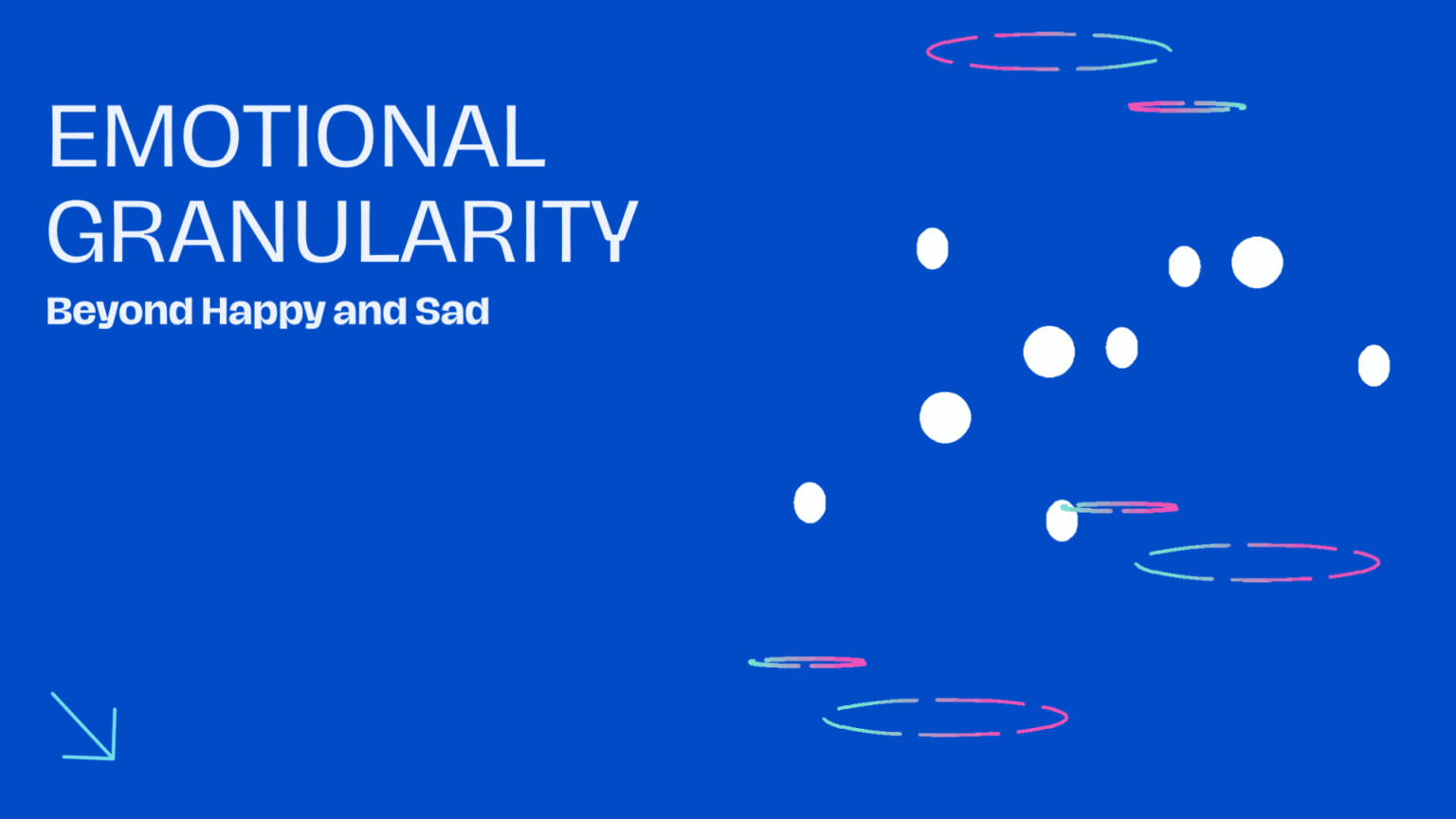“Regrets, I’ve had a few but then again too few to mention. And more, much more than this, I did it my way.”
— Frank Sinatra
Kindsight is to look at our past with kindness. Only if it was that simple. It is a cutthroat Competitive world out there. And as Albert Ellis an American psychologist puts it we have to live in the world as it is and not as it should be. But then this is all happening outside. How are we treating ourselves inside? So what happens outside do we let the same happen within our minds?
Shoulda Woulda Coulda
Every time we learn something new it comes with an expectation to use be used. That learning of the concept has to be implemented in our life. And of course, with that, it all also comes the guilt of not using that concept. So it’s not in learning there is learning, the learning is in implementation. But learning this adds to the guilt of not implementing that learning. What an odd cycle. It sounds like someone explains Meta versus these days. But in cognitive psychology we called is at meta-cognition or Meta-thinking. Thinking about thinking. Then there are emotions about emotions. Being Guilty about anger. Or in my case whenever we are learning something new there is a pang of guilt. The guilt of not using the learning. Which means we are only consuming and not creating. That’s where I want to start. Because most of the things that I will be covering in kindsight I know what to do but I didn’t. I could have done it that way. The usual culprits shoulda woulda coulda. I should have done that, I Would have been there & I Could have to get that.
“You have to provoke! It’s a good thing. Learning provokes, science provokes, opinion provokes. Offence provokes.” – Ricky Gervais in an interview Jay Brooks (Saturday Gaurdian magazine)
What is Kindsight?
Kindsight is to look ourself, our flaws and failures from the lens of common humanity. It is common for feelings of frustration to be accompanied by an unreasonable but persistent sensation of isolation – as if “I” were the only one who is experiencing difficulties or making blunders. All people, on the other hand, suffer. The mere notion of being “human” implies that one is mortal, weak, and defective in some way or another. To be compassionate toward oneself, one must first acknowledge that personal inadequacies and suffering are part of the common human experience – something that we all go through rather than something that occurs to “me” alone.
While suffering, failing or feeling inadequate, Kindsight means being empathic toward ourselves. Kindsight helps us not to badger ourselves with self-criticism for the past. Being flawed, failing, and encountering life issues are unavoidable for individuals. People with Kindsight prefer to be kind to themselves. They embrace themselves rather than being upset when life falls short of predetermined expectations. People can’t always be or have precisely what they desire. As a result of denying or fighting against this fact, pain manifests itself in the form of tension, irritation, and self-criticism. It is possible to feel more emotional serenity when this truth is embraced with love and kindness.
A balanced attitude to our unpleasant emotions is also required for Kindsight. So that they are neither repressed nor exaggerated. In the process of linking our experiences to those of others who are also suffering. we get a more balanced point of view, which helps us to put our own situation into context. Also necessary is the desire to examine our unpleasant thoughts and feelings. To observe them with openness and clarity. Allowing them to be retained in conscious awareness while we go about our daily lives. Mindfulness is a non-judgmental, receptive state of mind. One observes one’s thoughts and emotions as they are, without attempting to repress or reject them. It is a state of mind that can be learned. We are unable to disregard our own anguish while yet feeling sympathy for those who are suffering. Nonetheless, mindfulness necessitates that we do not get “over-identified” with our thoughts and emotions. Not get entangled and carried away by negative reactivity and reactionary thinking.
“View your life with kindsight. Stop beating yourself up about things from your past. Instead of slapping your forehead and asking, “What was I thinking,” breathe and ask yourself the kinder question, “What was I learning.”
— KAREN SALMANSOHN”
Why look with Kindsight?
Self-compassion improves the ability to cope with unfavourable life experiences & personal flaws. Research shows that induced state self-compassion reduces maladaptive reactions to tough life events.
Breines and Chen (2012) found that individuals who felt self-compassion for their flaws. Compassion to shortcomings motivated to learn, iterate and avoid repeating prior mistakes. Healthy coping mechanisms, drive, and mastery has all been linked to self-compassion.
Findings imply that self-compassion improves skills that may help people navigate difficult situations. Now as well as in the future. Thus, self-compassion may impact one’s view of the future. Future-outlook cognitions are assessments of the possibility and implications of prospective future developments. (Baumeister, Vohs, & Oettingen, 2016).
The Power of kindsight to Shift Our Perspective
Only optimism has been previously studied in connection to self-compassion. Optimism means having favourable expectations for the future. The connection between self-compassion and optimism held even after adjusting for self-esteem. (Neff & Vonk, 2009).
Self-compassion improves the ability to cope with unfavourable life experiences & personal flaws. Research shows that induced state self-compassion reduces maladaptive reactions to tough life events.
Breines and Chen (2012) found that individuals who felt self-compassion for their flaws. Compassion to shortcomings motivated to learn, iterate and avoid repeating prior mistakes. Healthy coping mechanisms, drive, and mastery has all been linked to self-compassion.
Findings imply that self-compassion improves skills that may help people navigate difficult situations. Now as well as in the future. Thus, self-compassion may impact one’s view of the future. Future-outlook cognitions are assessments of the possibility and implications of prospective future developments. (Baumeister, Vohs, & Oettingen, 2016).
Only optimism has been previously studied in connection to self-compassion. Optimism means having favourable expectations for the future. The connection between self-compassion and optimism held even after adjusting for self-esteem. (Neff & Vonk, 2009).
self-compassion to a healthy attitude towards the future. And also be causative in its development.
A Balanced time perspective
Self-compassion may also modify our perspective on the future. Shifting our weighting of the past, present, and future in a more favourable direction.
Zimbardo and Boyd (1999) identified five temporal dimensions:
1) Past-negative (aversive view of the past)
2) Past-positive (warm, sentimental attitude toward the past)
3) Present-hedonistic (risk-taking and pleasure-seeking)
4) Present-fatalistic (the belief that external forces control our lives) and
5) Future (striving toward future goals and rewards).
Time perspectives from the past, the present, and the future all work together in a balanced time perspective. This allows people to work in a time mode that fits their current needs. It is thought to have a lot of positive time perspectives from the past. A lot of future and present-hedonistic perspectives. A lot of negative time perspectives from the past and the future (Zimbardo & Boyd, 2008). It means that there isn’t enough balance in a person’s time perspective profile when they don’t follow the balanced time perspective. (DBTP; Stolarski, Bitner, and Zimbardo, 2011). Lower scores mean better balance.
A balanced time perspective is a better predictor of both current and future subjective well-being. It also includes optimism, then future time perspective is. This is because a balanced time perspective is linked to brain regions that process episodic memories. The regions are responsible for self-related processing, theory of mind, and imagining the future. (Guo, Chen, & Feng, 2017). Future-outlook can be off as a person’s thoughts about future events that are closely linked to remembering the past.
My experiments with Kindsight.
This is just the way I look at my past year. Trying to be kind and compassionate. This is of course not as it is. It’s a little polished. Little paint on the ugly parts. But I have tried to be as authentic as possible. I read somewhere there is nothing that sells like authenticity. And this is not advice-giving It worked for me may not work for everyone. I am serving this, you may have it with a pinch of salt or Dump it in the bin. Whatever works.
Kindsight at a year full of No and Hell yeh
When you learn how to say “no,” it’s like when you learn how to meditate. It’s a habit that you have to work on becoming. You get better at saying it as you keep saying it over and over. The easier it is, the less guilty you feel. We need to set our own personal rules about what we can and can’t accept for our own mental health. There are a lot of different ways to say “no.” For example, you can say “no” to invitations or extra work.
Most of the things that come to us are so so so well-designed to distract us. Everything more or less that happens on social media is there to distract us from what we are doing. And that is the reason why saying no to something on social media is very very difficult. It’s like an Amazon sale where you have you keep on buying things because you’re cheaper than the rest of the year. End up with things that we don’t need. And No has been my weapon very much in 2021. Not only social media one of the most important things I have learned to say No is to have too many projects. Trying to work on so many different things at a time. So now my focus has been shifted from five or eight things that I used to do at a time. Instead of Juggling on other different projects. I have been only hyper-focusing on one project at a time. That is a sea change. I got better results in the last year. Better results of focusing on only one thing that matters.
As Gary Keller says in “The One Thing” that the rest of the things would become more or less not relevant. And on the other hand Hell yesssss! has been a concept of Derek Sivers. It is either hell yes! or No. If you’re not like and yes from throughout your body it’s a no. Yes has to come from every part of your body. yes, this is something I’m going to put my energy on. yes, this is something I’m going to put in my effort. Yes, this is something I’m going to put my attention to. yes, this is something I’m going to put my everything. Only then say yes to a project. To put it in Derek slivers words hell yes or no. Well, when it comes to looking at No as practice in last year. I was able to do it but I do need a lens of Kindsight. Which means there were many things I didn’t say no to.
There was a good opportunity with good money to speak on Emotion Intelligence. Even though I a not expert I can speak an hour on that these days everyone can speak an hour on any subject. But I passed that opportunity as I felt someone I know can do better and I can say no to it. Once I had said no. My second brain started badgering me. How this was an opportunity of a lifetime etc. You know the drill. Now When I look after few months as the year-end with kindsight. I had done a decision. I would not taint it good or bad but it worked for me. It is very important to say no to certain things if you’re not aligned to your value or your goal. This is tough to do more than not looking at your Instagram.
Kindsight at a year full of essential and non-essential
Essential and non-essential might be something like hell yes or no but there is so much depth in this. The way we look at things that are essential for us and things that are not essential gives a different perspective. Even if you have streamlined one project it is very important to figure out what are the things in that project are essential. Like for example when I started with my website builder and I was working with him. So many features and so many things that the person could do on the website. I actually started with all the things possible that can be added to the website. of course, the website becomes much slower with all those plugins. Most o the features I was rarely using or not using at all.
We wanted to cut what was non-essential. So that it becomes a better and faster experience to Reading as well as taking courses online.The one that is essential. Look at the year in kindsight on essentialism. I am still learning the concept of essentialism. It is very important to figure out and understand what exactly is essential. So I have been very kinder to myself even when things were cluttered. Cluttered with non-essential. But now I can see the clutter and will curtail it as I go on focusing one after another. Finding out what is essential for you in the project and cutting out the non-essential can be very draining. But once you are through you are free of the clutter.
I did not beat myself so much is because I was new at this concept and now still working with this idea of essentialism. so maybe next year I may be much harsher with myself when it comes to the clutter. when it comes to essentialism I was kind of compassionate to myself. which was essential.
Kindsight at a year full of creation and consumption.
I read books. And I read a lot of them. I end up reading somewhere around 100 to 120 books a year. But I don’t give all the effort to all books. 30 books will have all my attention. I have a lot of highlights. I do something about them so they only or somewhere around 30 books. But then even after that, the level of consumption that I do is well not more than the level of creation. And this is something that has changed this year. I was very focused on creating and there has been a lot of changes in me when it comes to creation. The consumption is not just books though. there are other guilty pleasures. Netflix and online OTT platform and everything that comes easy and cheap and informative. Reading articles from Atlantic or New York time so whatever comes and whatever I am paying for.
You got to be careful if you don’t know where you’re going, because you might not
get there.-Yogi Berra
Because there is a subscription to certain things I have to go and look at certain things. So I have started being selective of what I consume. Unless I listen from like 10 people that a series on Netflix is good with a very high rating on IMDB. I invest one hour on the pilot. And then decide if I am really going to see through. I know it’s a lot of tasks. But it has reduced my consumption by half. Last year I badgered myself with consuming so much OTT. But this year I was mindful and I am sure I will be more deliberately selecting this year. This is how kindsight I had in 2020 helped me in 2021.
You may have been better with consumption than me or struggling. Where ever you are be kind to yourself. Even if you have free access to platforms be selective. Our mind is like a small kid don’t tell it you won’t get that ever. Tell it will get it after some time. It works.
Kindsight at a year full of learning and Dumbness
When it comes to my core belief I personally think that “I am incompetent.” The reason I am so focused on learning things and learning new things. So here I have to be much kinder for myself to be learning too much more than required. When it comes to dumbness Ironical that my dumbness comes because I learn too much. Means I learn and nothing happens. So implementing that learning into my life has been a big issue for me always. Whenever I am learning new things I’ll beat myself a lot if I’m not using that learning in my day to day life. I think that a kindsight here would be really helpful for me and has been really helpful when it comes to 2021. I am looking at last year with this kindsight.
Harvard marketing professor Theodore Levitt famously said, “People don’t want to buy a quarter-inch drill bit. They want a quarter-inch hole.”
I have learnt certain things and there is always a scope of implementing some of them that learning. But not everything that I can learn can be implemented or is it needed to in my life. I have been very particularly selective with that. On the other hand, I have also focused and used a lot of principles that I have been using in my day to “Day By Day journal “. I needed some kind of structure. I need the Action journal. So I made one. And it has completely changed the way I spend my day. My morning self-care routine my Afternoon and evening nothing seems like a waste. You can get the free template of Day by day journal here. Let us know if we’re able to put in place the Action journal in your life.
Kindsight at a year full of failure and success
And lastly the success and failure it’s never going to stop. No matter how mindful you are. No matter how much an enlightened being you are. you are also going to measure and whether you are successful in being enlightened. Success is something ingrained and failure is important and it is going to happen. On and off and on and off no matter what we do. So even if these are the norms given by society. It is important for us to understand that it needs our attention. And I think this is the most important thing very hard-hitting our self.
We are like devils to ourselves when we when it comes to managing failure. So when I look at the year through kindsight it’s been pretty successful when it comes to my personal victory. When it comes to a public victory I have been quite a failure. But for the mind, only failure counts. It will beat you to be successful everywhere. A way to look at kindsight for me was “factors beyond control” and “factors within control”. This mantra or distinction has been very helpful. This has helped me. I hit myself less because I know public victories have more factors beyond control.
I look at success/failure through the lens of the “present info present decision” model. Whatever information I had at that particular time has taken my decisions. According to that thing, I don’t have to beat myself so much so whatever the result is. If anyone who knew Apple Share would become so high in 2011 would have bought as much they could have. only if would have to if I had insight like what Steve Jobs had. But I did not have information that Steve Jobs has. I had information about a person only on Apple users could. I cannot go and beat myself that or regret that I should have could have done it in a different. We took decisions on the information we had at that particular moment.
Kindsight at a year full of regret and acceptance.
The start of the year 2021 was not a very normal start for me. Especially in India, it was a very dicey situation. What people faced in 2020 all over the world India faced in early 2021. At the start, so up till March April there was a complete lockdown in India again. what was happening externally what was happening internally. Regret was that even after all this thing I was not able to come up with all the things that were needed for my platform. To get it up and running. Acceptance was also about the thing that they were very few resources.
Regrets ignore chronology. They float around. The sequence of these lists changes all the time.’
Matt Haig (The Midnight Library)
Even in that, I did manage to do things. Looking at this whole concept or kindsight can be difficult sometimes. As here it is the only one which I come to or blame is myself. It Kindgsight becomes more important. I used several techniques from Acceptance and commitment therapy. A series of mindfulness exercises. I am fully loaded with tools when it comes to regret. Even After that, I am still in process. The year is nearly coming to an end but not the regret. That chap is very stubborn. But so is mindfulness and acceptance. After all, I am still working to have a kindsight of regret. The most challenging areas are of regret and there you need a lot more acceptance.
Kindsight at a year full of Self-care and self-sabotage
I am an advocate of self-care. But to do it when it comes to my own self-care of my God I have my own concerns. Where do people find time for themselves to care? And when do they find time to self-care? what is self-care? why the hell is it needed? I don’t have many responsibilities to look forward and look at this and back and after that, I don’t have time. When will people with children and parents and occupied with work find the time? I don’t know. And I don’t care. I did not have self-care on my agenda. There was nothing, particularly that anywhere I needed self-care. And I was so wrong after the Covid struck in 2020 I had to change my lifestyle and sleep something has been focusing on. And there have been drastic changes in the way I sleep. I have managed my sleep and everything around my health. Sleep can be the start of self-care. Many things revolve around it.
Maintaining a healthy sugar level, continuous glucose monitoring has been an important part of my lifestyle now. I’m so full of self-care. My mom calls this is selfish. Probably she is right but she has never taken care of herself. She never felt like it. But I am different. But after even after a year full of practice there has been self-sabotage Guru inside me.  So even after a year full of practice, there is a tiny or in fact a loud sound saying background why do you need self-care? Write that Damn article, Focus on that video. Everything is back to normal more or less. So keep self-care aside get back to that messy life. And this tiny voice of self-sabotage is there with everyone. My mother, every mother every woman, every man, every father. Anyone who requires some amount of time for themselves. To blend their ideas into practice and to get some amount of self-care. But 2021 was not just about self-care, I have managed to change a lot of things around my eating habits. The way I sleep like a baby. Exercise. I started exercising in zone 2. Whatever it is. So it’s always important to understand that a new something will come but the value of self-care is to live by. And bringing that newness every time into the value. The value of self-care is something that I would carry for the rest of my life.
The goals will keep changing of the value that is self-care. No matter what goal you are living are you are going towards the value. If you sway towards the value of self-care or towards self-sabotage is the ChoicePoint. Distinguish between these two and change and make a diversion as and when necessary. That will set the tone for the rest of your day. To stop that 3 remaining episodes of the most interesting NetFlix series. Drop that thought to complete the series. Start your Night routine to have a good night sleep. This may not be a big step but it’s the epitome of self-care.
Kindsight at a year full of mindfulness and mindlessness.
Mindfulness has been a struggle for me, years. I have known about meditation from my childhood. My dad was an avid learner of hypnosis and we made our own mixtapes of guided suggestions for our studies etc.
Also the concepts of observing self by J.Krishnamurti I knew as concepts by my late teens. But with Acceptance and Commitment Therapy I started implementing them daily. I started practising this in action around 2014. Mindful exercises for me always had different boundaries. But 2021 was a year I blended mindfulness in my daily routine like the colours of an evening sky. Somewhere subjective I accepted I cannot be mindful all the time. Even if I knew it was not possible I had not accepted it.
Knowing that factors beyond control can’t be controlled is not rocket science. Accepting you can’t and stopping the struggle with it can give an Elon Musk high. It feels effortless like SpaceX reusable launch system docked itself. From spending 2-3 hours mindlessly. Don’t think I am special everyone of us spends at least 3 hours distracted mindless activity. Whatever it may be. In some cases, it can be even meditating for hours to get some results. This reminds me of a zen fable “the bowl”.
A monk told Joshu, “I have just entered the monastery. Please teach me how to get enlightened”.
Joshua asked, “Have you eaten your rice?”
The monk replied, “I have eaten.I can sit here for hours and meditate.”
Joshua said, “Then you must have washed your bowl.”
At that moment the monk was enlightened.
Putting these things away when we’re done with the project isn’t just about being clean. You should be mindful of what you’re doing. You should finish what you start and not rush to the next thing, next project, next task, next goal.
Don’t get your head caught up in all this thinking about the meaning of life. Instead, just do what you have to do. The bowl should be cleaned now. You’ll also find everything you need while you wash.
Pre and postmortem of Ideas, Projects and Goals.
History repeats itself, first as tragedy, second as farce. Karl Marx
Gary Klein, an applied psychologist, coined the term ” Premortem”. Which Daniel Kahneman later wrote about. There is little doubt that we are all acquainted with the more prevalent postmortem. A dissection that follows any aftermath. After a death, a pathologist examines the body to establish the reason for death. Making meaning of one’s own or someone else’s experience yields knowledge. Formal assessment reports are common (but rarely adequate) in many human endeavours. It rarely explains why an effort succeeded or failed. After-action evaluations, retrospects, and learning histories we conclude. Unless you are a learning organisation, lessons are learnt in retrospect. Concentrating on responsibility rather than learning at the (wrong) conclusion of a plan.
That is where a premortem enter. A premortem is an autopsy without the autopsy’s hindsight. Imagine that a team’s strategy has already been executed and failed. This improves our capacity to predict bad future outcomes. Taking us out of the framework of defending and protecting. It allows us to look for flaws in fresh ways. Despite our quick confidence, we may now discover several reasons for failure. Factors that we didn’t consider when the strategy. Incorporating markers into the team’s design and monitoring framework. Would offer early notice if progress is not as intended.
Premortems may help avoid disasters for two reasons. First, going through this exercise may help you reject overconfidence. The premortem procedure protects a terrified sceptic brain from being heard. After all, the exercise’s main goal is to identify project flaws.
A premortem is also beneficial since it is subtle. Starting the exercise by assuming the project has failed. Then contemplating why creates the illusion of certainty. Studies show that questioning why it failed rather than why it could fail drives the creative process.
By looking at life in Kindsight is to see the future with premortem and past with more compassion. So do this exercise how you failed in that project you want to work on next year.
To help you get to your spiritual heart, here are three pillars of change:
In practice, you learn how to do something (What You Do)
Breathwork: The breath is the fastest way to get into the present moment and calm down your thoughts. Listen to your spiritual heart’s language for guidance on what to do next in that quiet time. In ACT we have a process “contacting the present moment.” It is embedded in the Our action journal you can find it here.
Mindfulness: Even 10 minutes a day of Mindfulness improves your ability to self-regulate. Try it. Expecting to get something out of Mindfulness is a way to failure. But less stress more relaxation can be side effects or byproducts. It may help to cultivate pause between the stimulus and your response longer. So you can more easily choose the next skilful thing to do. we have embedded several exercises in our Action journal. Day By Day you can find it here.
Exercise and healthy eating: When you have a strong, well-fed body, you can help others without getting tired or worn out. Take care of your body, and you’ll also see a boost in your mental well-being.
Sharing with others and looking for ways to help others keeps you humble and rooted in the community, which is what service is all about. Service I won’t call it selfless. Because there is nothing that you do is without yourself. Caring less about the outcome, helps you grow in compassion and well-being. Both those around you, as well as for yourself.
The more you know, the better (What You Learn)
“This above all: to thine own self be true, and it must follow, as the night the day, thou canst not then be false to any man.” —William Shakespeare.
Well sometimes Ignorance is bliss but not always. Especially not if you are living in the knowledge economy. In the end, to whom are we supposed to be true? In poor moods which is our own self, or after we’ve been humbled by our blunders is it more likely to show up? During those brief times when life seems so whimsical and light, or when we’re in a state of despair, which one of us is speaking from the depths of our hearts? You decide. You learn. When you eventually come to terms with the fact that the “I” inside of you will never be satisfied. you’re ready to grow. Sounds Philosophical because it is.
But Remember words of my Grandmother Tai Aajjie used to say” Just because you eat mutton you have to tie a bone in your neck” Decide what you want to share with the world. Every choice and everything you do is not an eternal truth.
Forgiveness: Forgiving frees you from the ties of hatred, anger, and sadness, so you can move on. This is an art, and it takes a lot of work. There is a long process to forgiveness.To make a promise to become the best version of yourself, no matter what it takes. The path isn’t easy or straight. Even so, it’s possible, and you’re worth it.
There are a lot of things that people value (What You Cultivate)
Studies show that healing happens when people are together. Where being alone makes you sick and hurt, being in a group makes you more honest and supportive. As the Buddha said, the whole point of sacred practice is to be with other people.
Values: It’s not enough to think about things and act in a certain way; you have to live your life in a way that is in line with your own Value code. These are your values, and you agree to act in a way that is consistent with them. It is a long-term process of self-examination and practical application. Our Day by day notion template helps you connect your values with goals. You can download the template and how to use instructions here.
We have highlighted on Instagram all values that you select. You can also do this exercise here.https://www.linkedin.com/embeds/publishingEmbed.html?articleId=7980803114460874409
The spiritual heart is what I call our true nature. who we are when the stories fade away, and our innate ability to be free of pain and tap into our own compassion, wisdom, courage, creativity, and harmony. I learned to be present and listen from this place of connection slowly but surely. It is not easy, but worth the effort.
The only time I could look back on my past with compassion was when I had a strong spiritual heart. The painful memories moved to the other side. They no longer caused me to be angry or defensive. Instead, they became allies and growth points on my journey to healing. I learned that everyone has a unique message to share with the world. Also that these painful experiences and personas are an important part of that message. Get connected to your Self.
My life is a shambles simply because this creature that lives here with me needs to turn everything into a melodrama.” Once you’ve seen this and come to terms with the fact that you no longer identify with your roommate(the voice in your head), you’re ready to break away…
Thank you for reading. It makes a difference. If you want to design a better day. Download our Day by day Action Journal basic version for free here. To know what new ideas I am working on visiting my digital garden here
References
Self-Compassion Increases Self-Improvement Motivation
Juliana G. Breines, Serena Chen
Pragmatic Prospection: How and Why People Think about the Future
Self-compassion versus global self-esteem: two different ways of relating to oneself
Putting time in perspective: A valid, reliable individual differences metric.
Time perspective, emotional intelligence and discounting of delayed awards
Fierce Self-Compassion: How Women Can Harness Kindness to Speak Up, Claim Their Power, and Thrive
Self-Compassion: The Proven Power of Being Kind to Yourself
The Untethered Soul: The Journey Beyond Yourself
Get Out Of Your Mind And Into Your Life: The New Acceptance and Commitment Therapy
Acceptance and Commitment Therapy: Principles of Becoming More Flexible, Effective, and Fulfilled
Thinking, Fast and Slow (Penguin Press Non-Fiction)
Intuition at Work: Why Developing Your Gut Instincts Will Make You Better at What You Do
The One Thing: The Surprisingly Simple Truth Behind Extraordinary Results
Hell Yeah or No what’s worth doing










